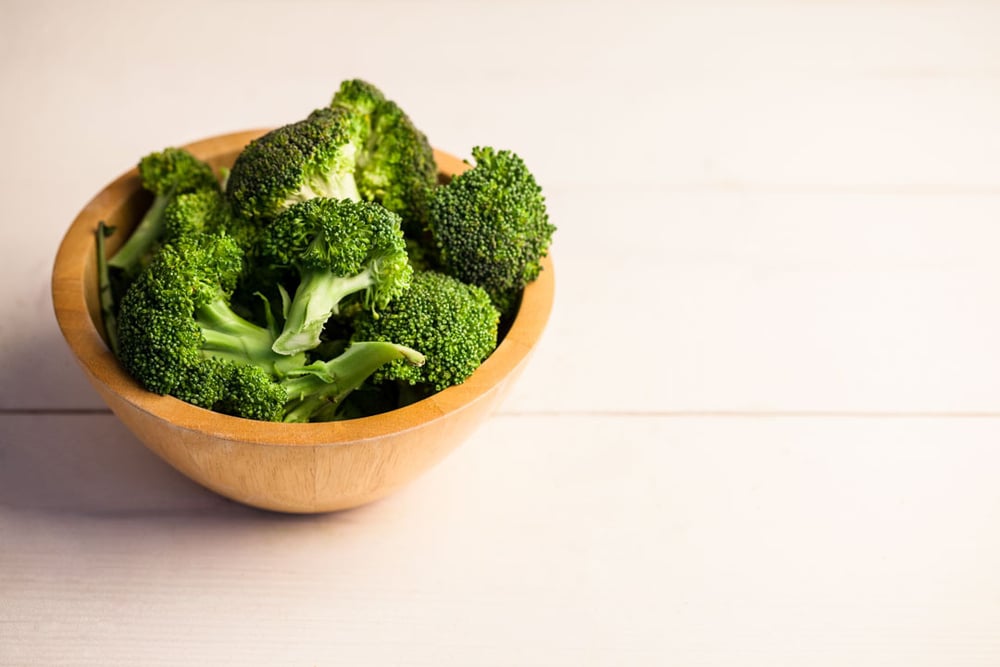Can Your Diet Reduce Pain?
3 min read

The primary cause of chronic pain for a lot of people is inflammation. A healthy diet can help by reducing chronic inflammation. Some foods have properties that increase inflammation and others have properties that reduce it. The less inflammation you have, the less pain you may experience.
The evidence is strong that your diet plays a big part in chronic Inflammation. Inflammation is a good thing in some cases, especially related to injuries. That’s because it helps eliminate toxins and bring blood to the area where healing is needed. But when inflammation goes on consistently it becomes chronic which results in pain.
If you have chronic pain, you may be looking for ways to find relief without resorting to painkillers – over the counter or prescription. Your diet is a good place to start.
Can Your Diet Cure Chronic Pain?
No, unfortunately, a healthy diet alone does not cure the underlying condition causing your pain such as osteoarthritis which is inflammation of the joints. However, your diet can help reduce the inflammation that is the result of arthritis. As inflammation goes down, so does pain.
Foods You Should Avoid to Reduce Inflammation
To help reduce back pain, knee pain, or other chronic pain caused by inflammation there are some foods you should avoid. Start by eliminating foods with little or no nutritional value. According to Harvard Health, some foods you should avoid include:
- Foods and beverages with a lot of added sugar. Drink flavored water, such as water with lemon or other fruit added, instead of soda. Eat fruit instead of candy. Too much refined sugar can cause your body to release pro-inflammatory compounds.
- Refined grains such as white bread, white rice, etc.
- Excessive red meat, especially processed meat such as sausage, lunch meats, and hot dogs.
- Highly processed foods with a lot of extra ingredients and preservatives.
- Trans fats, generally found in baked goods, packaged snacks, deep-fried foods, creamer, and margarine.
- Foods with added oils, including vegetable oil, lard, or margarine, or that are greasy.
- Extremely salty foods and snacks. Don't cut sodium down too far, but it's a good idea to monitor how much you take because excessive sodium can lead to water retention, which increases the weight your joints are carrying.
Additionally, some people may find other foods trigger issues. Keeping a food diary can help you track down problem food.
Foods You Should Seek Out to Reduce Inflammation
There are also foods you should add to your diet as much as possible to help reduce inflammation. It's worth doing your research to find recipes that hide food which is good for you but which you don't particularly like. Anti-inflammatory foods you can choose include:
- Cruciferous vegetables such as broccoli, Brussels sprouts, cabbage, and cauliflower.
- Whole grains, including barley, rye, buckwheat, etc. If you dislike whole wheat bread, try rye bread as an alternative, especially darker rye bread.
- Fish. Salmon is particularly good for you, as is light tuna. Both contain a lot of omega-3 fatty acids.
- In-season, fresh fruits and vegetables. For example, you might consider a bowl of cherries instead of the candy bowl. In summer, you can pit and freeze cherries and other berries for natural popsicles.
- Hot peppers. Capsaicin has a strong anti-inflammatory effect. Bear in mind that if you are not used to eating hot peppers they can cause indigestion, so introduce them slowly.
- Turmeric. Turmeric features heavily in Indian and Southeast Asian cooking. You can also add it to salad dressings or soups. It has strong anti-inflammatory properties and is often used as a supplement to help joint pain.
- Garlic. Garlic is overall just plain good for you, and can reduce inflammation from joint pain. Buy fresh garlic and chop it rather than using powder, when possible.
There are many anti-inflammatory diet plans out there. Just remember to keep all things in moderation and stick to foods that aren’t overly processed as much as you can.
Changing your diet isn’t a promise that your pain will go away. However, a healthy diet can help reduce inflammation along with other benefits including:
- Weight loss.
- Making you better equipped to fight off illness.
- Improved energy levels.
Eating a healthy diet along with chiropractic care for arthritis or other chronic pain can help you feel better overall, reduce stress and move around easier.
If you’re experiencing regular chronic pain, especially from arthritis,
 for a consultation.
for a consultation.





